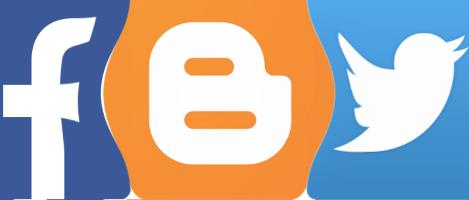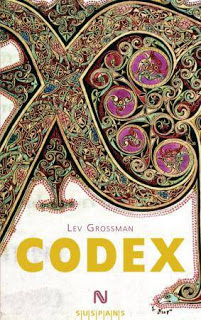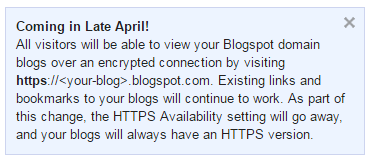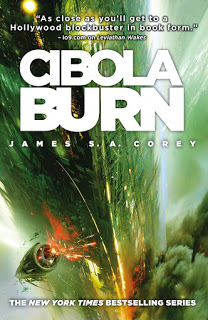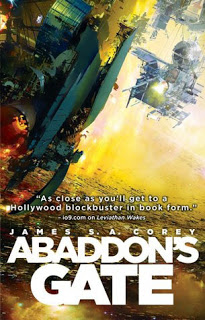
I've been monitoring more closely the access to my blog and I noticed that a lot of people are interested in the post about the Sicilian Wing Gambit, defined as pushing b4 in reply to the standard Sicilian Defense e4 c5. So I will be trying in this to use new knowledge and computer engines to revisit this funky opening gambit. As such I will be using LiveBook, a system created by the people at ChessBase that tries to catalog and discover chess based on active chess games and analysis, as well as computer engines, in this case Komodo 9 with a 256MB table memory. I've continued each variation until there was only 1 game left in the database, then I stopped.
Main line from LiveBook
Let's start with LiveBook. Here is a PGN with the main variations in order of use. You will notice that the main line is to accept the gambit (GM Jan Gustafsson even wrote "take the pawn and be happy!" at that particular junction), then refuse the second pawn and immediately challenge the center - which would have been the Sicilian idea all along - by pushing d5. It loks a bit like a Scandinavian Defense, but without White being able to push the Black queen back with Nc3. The main line shows Black gaining advantage, but then losing it by move 12, where equality sets in. However, the computer does not recognize some of the moves in the main line as best.
In the line that I was interested in, the one where Black takes the pawn on the a-file, White gains the classical center and technically it is ahead in deployment of minor pieces, if one considers a knight on the a-file and a semi blocked in bishop developed pieces. However, not all is lost, as the computer has some ideas of its own. Also keep in mind that the Sicilian Wing Gambit is not well known and few people actively employ it.
So here is the PGN of the LiveBook database, based on what people played: 1. e4 c5 2. b4 {This is the Sicilian Wing Gambit. From here on, the percentages in the comments are wins for White and the points are from computer engines.} cxb4 (2... b6 3. bxc5 bxc5 4. Nc3 Nc6 5. Rb1 g6 6. g3 Bg7 7. Bg2 Ba6 8. Nge2 {50% / 0.00}) 3. a3 d5 (3... bxa3 4. Nxa3 d6 5. d4 Nf6 6. Bd3 Nc6 7. c3 e5 8. Ne2 {50% / -0.33}) (3... e6 4. axb4 Bxb4 5. Bb2 (5. c3 Be7 6. d4 d6 7. Bd3 Nf6 8. Ne2 Nc6 9. O-O O-O) 5... Nf6 6. e5 Nd5 7. c4 Ne7 8. Na3 (8. Qg4 Ng6 9. h4 h5 10. Qg3 Nc6 11. Bd3 {50% / -0.75}) 8... Nbc6 9. Nc2 Ba5 {50% / -0.25}) 4. exd5 Qxd5 5. Nf3 (5. Bb2 e5 6. Nf3 Nc6 7. c4 Qe6 8. Bd3 Nf6 9. O-O
Bd6 10. Re1 O-O 11. axb4 Nxb4 12. Bf1 {75% / 0.00}) 5... e5 6. Bb2 (6. axb4 Bxb4 7. c3 Be7 8. Na3 Nc6 9. Nb5 Qd8 10. d4 exd4 11. Bf4 Kf8 12. Nbxd4 Nxd4 13. Nxd4 {50% / 0.00}) (6. c4 Qe6 7. Bd3 Nc6 8. Bb2 Nf6 9. O-O Bd6 10. Re1 O-O 11. axb4 Nxb4 12. Bf1 {75%}) 6... Nc6 7. c4 Qe6 8. Bd3 Nf6 9. O-O Bd6 10. Re1 O-O 11. axb4 Nxb4 12. Bf1 e4 13. d3 Qd7 14. dxe4 Bc5 15. Bxf6 Qxd1 16. Rxd1 gxf6 {50% / 0.00} *
Computer analysis: main line
Now let's put Komodo on the job, let us know what is going on here. Many people analysed the position resulting after pushing b4 and with depths of 36 and 40, computer engines overwhelmingly suggest taking the pawn. However we might want to explore what happens if we take another option. It is interesting to note that Komodo 9 pushes the main move as the third most important at depth 24. Perhaps later on this would get reversed again, but this soon into the game it just tells us that the other options are equally good. The two moves I am talking about is d5 and e5. Interestingly enough, the second most common human move (b6) is not even on the radar for the computer, while the computer move appears to have been played only 4 times by humans. So let's take a look at computer moves:1. e4 c5 2. b4 d5 3. exd5 cxb4 4. a3 Qxd5 5. Nf3 e5 6. axb4 Bxb4 7. c3 e4 8. cxb4 exf3 9. Qxf3 Qxf3 10. gxf3 * At the end of all this, White has four pawn islands and doubled pawns, but can quickly use the semi open files to attack with rooks. Maybe this discourages you, but remember two things: these are computers making these moves and while the position looks weird, you get attacking chances with no loss of material. That is the purpose of a gambit after all.
Computer analysis: accepting both pawns
Let's see what computers say about the line that we want to happen. The gambit is accepted, the a-pawn is captured as well. What then? I was surprised to see that, depending on depth and engine, the next move is quite different. Stockfish 6, at depth 39 goes with d4, taking control of the center and ignoring the Black a-pawn. The variations from this position are quite complex and have less to do with this gambit. I would gamble (pardon the pun) that the purpose of the wing gambit was reached at this point. Computers give a clear equality between players, but remember that even after we capture the a-pawn, we have still would be a pawn down. Black is forced to passive moves like e6, d6, having to spend resources to regain center control, while most White pieces have clear attack lines.
An example: 1. e4 c5 2. b4 cxb4 3. a3 bxa3 4. d4 e6 5. Nf3 d5 6. e5 Bd7 7. Bd3 Nc6 8. Nxa3 Bb4+ 9. Bd2 Bxd2+ 10. Qxd2 a6 *
Computer analysis: accepting just the first pawn
But what happens in between these two options? What if Black accepts the gambit, but doesn't take the second pawn? Will the computer see the same result as in the "human main line" we first discussed? Not quite. The computer moves are really different from the human ones. 1. e4 c5 2. b4 cxb4 3. a3 e5 4. Nf3 Nc6 5. Bb2 Nf6 6. Nxe5 Qe7 7. Nf3 Nxe4 8. Be2 d5 9. O-O Qd8 10. Bb5 bxa3 11. Nxa3 Bc5 * The result is another equal position, where White lost the center, but has a strong, yet weird development.
Also check out 3... d5: 1. e4 c5 2. b4 cxb4 3. a3 d5 4. exd5 Qxd5 5. Nf3 e5 6. axb4 Bxb4 7. c3 e4 8. cxb4 exf3 9. Qxf3 Qxf3 10. gxf3 Ne7 * An interesting tactic is not to take the d5 pawn and instead advance the e-pawn to e5: 1. e4 c5 2. b4 cxb4 3. a3 d5 4. e5 Nc6 5. Bb2 Qb6 6. Nf3 Bg4 7. axb4 Qxb4 8. Bc3 Qe4+ 9. Be2 Bxf3 10. gxf3 Qf4 11. d4 * You can watch an example game in this variation from Kingscrusher.
My opinion on this is that White forces a strong center, but, as seen from the computer variation, the sides get seriously compromised. The truth is that I always wondered if there is a solid play with the king in the center. This might be it, although keep in mind that in that position White is a pawn down.
What if we start with b4 and then try to move towards the center?
Well, that's easy to answer: it's another opening :) called the Polish or Sokolsky opening and I have written another blog post about it, although it is pretty old. Maybe I will also revisit that one. The point with that opening is that it already shows Black what we plan and it has some other principles of work, more closely related to the English opening to which it sometimes transposes. The Wing Gambit, though, is a response to the Sicilian, trying to pull the opponent from their comfort zone and into ours.
What if we delay the b4 push?
One can wait for the wing gambit until knights have left their castle. That's called the Portsmouth Gambit (1. e4 c5 2. Nf3 Nc6 3. b4) and some consider it stronger than the gambit presented here. It might be interesting to analyse. Haven't found a lot of resources on it, just this 2014 book from David Robert Lonsdale.
Another option is to play 3. a3, preparing a support of b4 on the next move. It does produce similar results as the base gambit, but I didn't have time to analyse it and it feels a bit slow, to be honest.
When Black defends with b6
Defending c5 with b6 leads to a Sicilian without the b-pawns. That means that an attack on the queen side is out and the White light square bishop can linger around on the queen side as long as it wants, targeting that juicy Black king side from afar. Combine that with the dark square bishop having a nice diagonal as well. 1. e4 c5 2. b4 b6 3. bxc5 bxc5 4. Nf3 Nc6 5. Bb5 Nd4 6. Nxd4 cxd4 *
For an example of that variation, check out Kingscrusher's video.
Traps in the Sicilian Wing Gambit
I couldn't find a lot of traps in the Sicilian Wing Gambit. One good video on this comes from GJ_Chess (ignore his Indian accent, he is actually quite good and, what I like a lot, he focuses on traps and dirty tricks in his videos):
[youtube:5KNVTce4tmE]
Other ideas and nomenclatures
The ECO category for this opening is B20, same as for the Sicilian Defense, which doesn't help a lot.
After Black captures the b-pawn, c4 is called the Santasiere variation of the Wing Gambit, and Black's only option seems to try for control of d4 with either e5 or Nc6. Taking en-passant is giving White a lot of compensation in development.
The goading of the Black pawn with a3 that we've covered above is called the Marshall variation. If Black pushes the pawn to d5 and White captures, we enter the Marienbad variation, while if Black captures the a-pawn, it is called Carlsbad variation. For the record, bad is the German name for bath not an indication that the variation is bad :).
Pushing a3 before b4 is called the Mengarini gambit. Check out a game from 2013 between Dobrov and Blom.
Other resources on the gambit
A nice review of this gambit, with names of the variations and some human analysis, can be found on chess.com. (The same author has a post on The Portsmouth Gambit as well)
On chesstempo there is a nice list of games with this variation that you can search. Play around with the Advanced Search parameters. As a reference, there are 11 games from people over 2500 using the Wing Gambit and White has most wins. If restricting to games after 2000, you only get one, which ended in a draw, although White was better at the end. You can see the game here: Timur Gareev vs Gata Kamsky, US Championship (2015).
Interesting Wing Gambit/Fried Liver attack combo that you can see here: John P. Pratt vs Elden Watson, 29 Sep 1976, Hill Air Force Base, Utah. You gotta love that. Not the best rated players in the world, but still. Here is a lichess computer analysis of the same game.
A 2013 call to reevaluate the Wing Gambit with some examples of famous old games where the opening had a strong effect.
Conclusions
Unlike the Sokolsky opening, the purpose of the Sicilian Wing Gambit is not to push the b-pawn to block Black's development, but to deflect the c-pawn from protecting the center. The goal is reached when White has a strong center. In no way does it mean it is a winning gambit. There are no brutal traps, no quick wins, the only purpose of this opening is to pull an aggressive Sicilian player from their comfort zone and into a slower, more positional one. That means that the White player needs to attack like crazy until Black is a mere smear on the board, otherwise the center control and speed advantage that may be obtained from the opening can be easily lost.
From my analysis I gather that Black should accept the gambit, but not continue to take pawns like the a-pawn, instead focusing on their own piece development and control of the center. With perfect computer play, equality is reached and maintained. White often fianchettoes the dark square bishop to b2 from where they put pressure on the Black king side. Black's game often centers on exchanging pieces, so that the opening advantage gets lost. The best chance Black has to decline the gambit seems to be pushing d5, going into murky territory.
White on the other hand should push for the center, even propping the d-pawn with c3 and blunting the dark square bishop diagonal. Then focusing on attack is the most important feature, as in most gambits.
Careful with the variation in which Black attacks the e4 pawn with d5, then capturing with the queen after the exchange. If not careful the queen can fork the king and the rook. That is why Nf6 is played by White as the next move or even Bb2, although that's not as good, as the bishop can be deflected.
Usually the a-pawn is recaptured with the knight, not the bishop. This may seem surprising, but what it prepares is moving the knight on b5, attacking c7 and a7 and being very hard to dislodge, as the a-pawn is pinned to the rook. Some variations sacrifice the Black rook in the corner for a quick counter-attack. In case it is captured with the bishop, the idea is to exchange dark square bishops and prevent the Black king from castling.
In several games I have seen, moving towards the center forces Black to use e6 followed by d5, to which White can respond with e5 themselves and get into French defense territory. Personally I dislike playing against the French, but in this case, without b-pawns, the theory is quite different as well. For an example, check out this video from Kingscrusher.
Even if caustic GM Roman Dzindzichashvili categorized this as the worst opening for White, don't forget that it was used by Fischer in 1992 to beat Spassky. Well, a transposition thereof. If you are confident in your chess skills, this is just as good an opening as any other and at least you need to know it a little in order to defend against it.
I would love some comments from some real chess players, as all of this is based on game databases and computer analysis. Please leave comments with what you think.
Video examples
Here is Simon Williams using the gambit against a young Polish player:
[youtube:NkD12gJcbO4]
ChessTrainer shows a nice game where he uses the gambit to get a quick center and take his opponent out of Sicilian main lines:
[youtube:KITg5dYVsYk]
MatoJelic is showing us some classical games:
Thomas A vs Schmid, Hastings 1952
[youtube:8UTSqKIPQ-8]
Wood L vs Mease A ,USA, 1949
[youtube:XkymLpg781c]
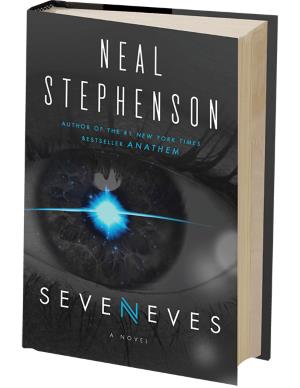 Neal Stephenson is known for writing speculative science fiction with focus on technological advancements and Seveneves is all about space. He thought about the idea in 2006, while he was an adviser with Blue Origin and he let the idea fester for years, while getting feedback from all kinds of people knowledgeable about and invested in space technology, like Planetary Resources, so at least the science is good. Personally, I believe that he gathered so much material that he just had to write the book, regardless if he had a story to tell or not. Never have I read a book that is so obviously written by an engineer, with long descriptions about how space stuff works and how a culture is like or how people solve problems. It's all about the how, never about the why or the who. As such, I consider it a failed book, because it could have been so much better as a well thought, well edited trilogy of books, with compelling characters, rather than a humongous enumeration of space technologies.
Neal Stephenson is known for writing speculative science fiction with focus on technological advancements and Seveneves is all about space. He thought about the idea in 2006, while he was an adviser with Blue Origin and he let the idea fester for years, while getting feedback from all kinds of people knowledgeable about and invested in space technology, like Planetary Resources, so at least the science is good. Personally, I believe that he gathered so much material that he just had to write the book, regardless if he had a story to tell or not. Never have I read a book that is so obviously written by an engineer, with long descriptions about how space stuff works and how a culture is like or how people solve problems. It's all about the how, never about the why or the who. As such, I consider it a failed book, because it could have been so much better as a well thought, well edited trilogy of books, with compelling characters, rather than a humongous enumeration of space technologies.